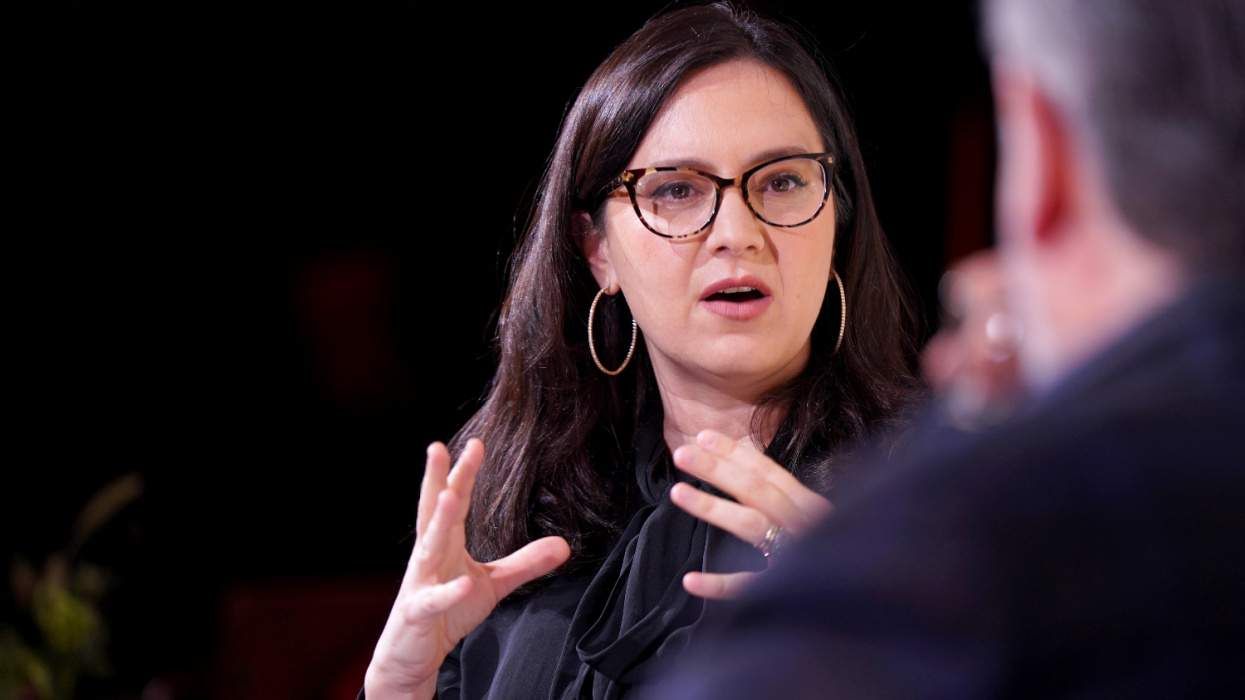Partway through college, I realized I had an insurmountable crush on one of my roommates. So, that wasn't ideal.
Up to this point, there had been no signs I might not be straight, other than in first grade (when I fell in love with a girl on the slide), and in eighth grade (when I wanted to hold my friend's hand at the movies so badly I thought I might die), and in tenth grade (when I had a recurring dream about turning into a mermaid and swimming off to a world without men). I was as surprised as anyone.
The first time I logged onto the Stanford housing portal, relatives gently advised me to tick the box that said, "Please only house me with straight people, for I am afraid." I didn't -- due to abiding progressivism or subconscious observance of the obvious -- but I always wondered about that prim, contrived concern. What was the fear? That some future roommate would see me fall off my lofted bed and say, "Your poise, your grace, I must have you"?
How the tables had turned.
Campus had a postcard-perfect spring that year: Drought-agnostic green lawns dazzled; students wheeled through Main Quad on bicycles; I sat with my feet in a chlorinated fountain and tapped woeful, angsty poetry on my Notes app. I didn't have the foggiest idea of how to channel these feelings. It seemed obvious I couldn't tell anyone; if having a crush on your roommate wasn't terrible, why would the housing portal have asked us if we wanted to avoid queer roommates? I tried to bury the feelings. The poetry worsened.
Part of why I was slow to realize I was bisexual was because I didn't know it could, would, feel different to have feelings for a woman. I kept expecting, not just the attraction, but the accoutrement of other emotions that came with liking a guy -- protection, fear, the power of being deemed worthy by a man in a patriarchal society. But with my friend, I felt -- I don't know, bubbly?
As I grew increasingly sure I wasn't straight, I grew increasingly sure she was. It made me feel like a teenager again: all bottled-up emotion with nowhere to go. I finally found my outlet when I stopped writing poetry and started writing Girls at the Edge of the World. I gave voice to my teenage-y feelings through two yearning, hopeful, fearful, queer protagonists.
If writing a book was the way I explained my sexuality to myself, publishing it is how I explain to the world. I've always been private. Left to my own devices, I would probably tell my family about my sexuality at the bottom of an email: "PS, I'm bi; PPS, can you explain how taxes work?" But the book, since it sold, has been slowly nudging me out of my comfort zone.
The question my protagonists face is the question I asked -- and continue to ask -- myself. Would you rather choose the known: certainty, approval, familiarity? Or would you rather choose your whole damn self?
My characters -- braver than me by half -- always convince me to choose the latter.
Laura Brooke Robson grew up in Bend, Ore., and moved to California to study English at Stanford University. She currently lives in Melbourne, Australia, where she enjoys drinking too much coffee and swimming in places she's probably not supposed to swim. Girls at the Edge of the World is her debut novel.















